Eczema is a skin condition that causes dryness, redness, itching and scaling. It's the most common skin condition in children and affects at least 25% of the population at some point in their lives. But despite it's prevalence, many people don't know what eczema is or how to treat it. This blog aims to change that by explaining eczema types, symptoms, and the best ways to cure them. By doing so, you'll be on your way to a skin care routine that works for you - no matter what type of eczema you have!
What is eczema?
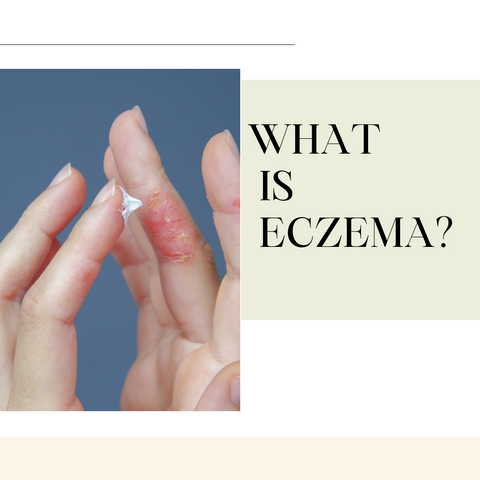
If you're scratching your skin and it itches, you likely have eczema. Eczema is a skin condition that causes inflammation and redness. It can affect any part of the body but is most common on the face, neck, hands, and feet. There is no one-size-fits-all approach to treating eczema - it will vary based on the severity of the condition. Some treatments include topical applications like calming creams, moisturisers, emollients or oral medications, and phototherapy (using ultraviolet light). Eczema is a skin condition that can be treated in many ways, but topical eczema treatment requires a combination of several different approaches to get the best results. Internal and external treatments all aim towards management and severity reduction.
Causes of eczema
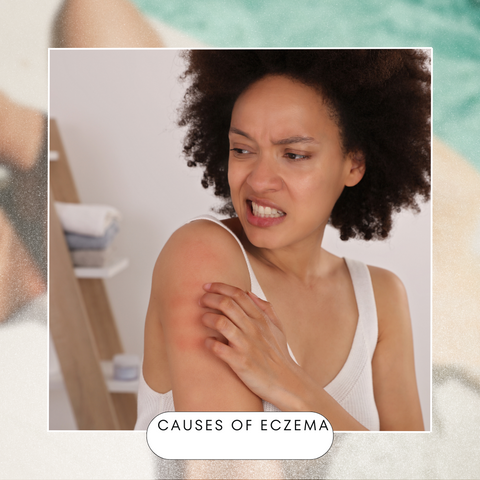
Often, it is difficult to determine the cause of eczema, as a variety of factors can cause it. However, allergies and environmental factors are often at the root of eczema symptoms. If you're experiencing eczema symptoms, you must see a doctor for a proper diagnosis and treatment. The following are some typical eczema causes and triggers:
-
Genetics: The effectiveness of the skin's defence mechanism against allergens and irritants may be compromised by specific gene mutations. Certain gene mutations can affect the skin's ability to provide an effective barrier against irritants and allergens.
-
Immune dysfunction: Eczema is associated with an overactive immune response. The immune system may overreact to certain triggers, resulting in inflammation and skin irritation.
-
Environmental factors: Exposure to irritants or allergens can cause or worsen eczema. A few examples of these triggers are dust mites, pet dander, pollen, detergents, wool and synthetic fabrics, and specific foods.
-
Dry skin: A weakened skin barrier that is unable to efficiently retain moisture might aggravate or cause eczema symptoms.
-
Stress: In some people, emotional stress can aggravate eczema symptoms or cause flare-ups.
-
Climate and weather changes: Extreme temperatures, low humidity, sweating, and rapid changes in weather conditions can irritate the skin and exacerbate eczema symptoms.
-
Microbes and infections: Eczema can be triggered or worsened by skin infections caused by specific bacteria, viruses, or fungi.
-
Hormones: Changes in hormone levels, particularly in women, can have an impact on eczema symptoms. Eczema symptoms, for example, may worsen during pregnancy or menstruation.
-
Certain foods: While food allergies do not cause eczema, they can cause or worsen symptoms in some people. Dairy products, eggs, nuts, seeds, wheat, and soy are all common trigger foods.
In a few clicks, you can book a dermatologist consultation online. In this way, you can consult the best dermatologists in India to get a personalised treatment plan on Clinikally as per your hair/skin concern. Many of the best treatments for eczema involve topical medications and lifestyle changes, such as keeping your skin moisturised and well-protected. So, whether you're suffering from mild eczema, dry skin, or eczema at its worst, know that many options are available to get relief.
Treatment for eczema
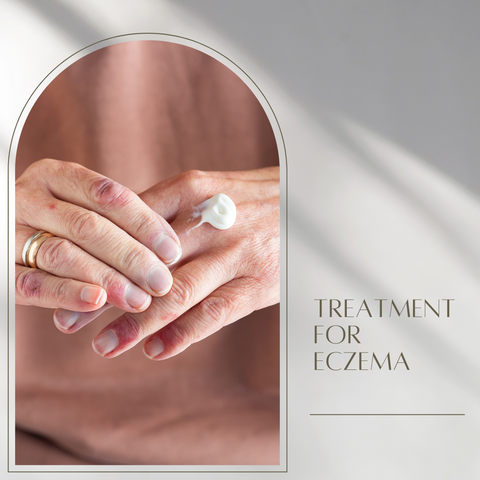
Eczema is a skin condition that can be itchy, dry, and red. It can be tough to treat, although with the help of a doctor and topical treatments, it may be treated. Treatment typically involves the use of topical treatments such as creams, ointments, or balms. Early detection is key to success so be sure to consult your doctor if you experience any signs or symptoms of eczema. Here are some tips to reduce eczema flare-ups:
-
Apply a cool compress to your skin like oatmeal or baking soda to relieve itch.
-
Moisturise your skin daily to form a protective barrier against the elements. Apply it right after your get out of the shower to seal in the moisture.
-
Gently pat with your skin with a soft towel after your bath. Never rub.
-
Avoid scratching.
-
Use fragrance-free detergents, cleansers, makeup, and other skincare products.
-
When handling chemicals, wear protective gloves and clothing.
Start your eczema treatment today!
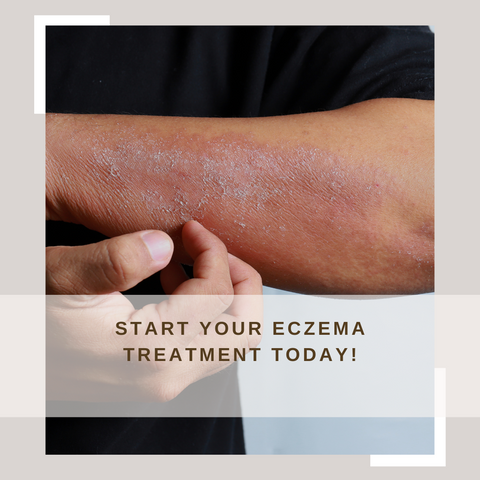
Eczema is a common skin condition that affects people of all ages. Symptoms can vary from person to person, so it's essential to consult your doctor for a diagnosis. Once you know your symptoms, it's time to start on your treatment plan. Treatment starts with an assessment and then with the right meds and topical treatments. There are many types of eczema, so it's essential to find the right treatment plan that will work best for you. Remember, keeping up with your treatment plan is important, as eczema can flare up at any time. If you're experiencing symptoms, you must consult your doctor as soon as possible. Eczema can be pretty frustrating as it can be hard to find the right treatment that works for you. However following the tips outlined in this blog, you can start your treatment today and feel better soon! Don't wait any longer - start treating your eczema today!
#1 Atopic dermatitis
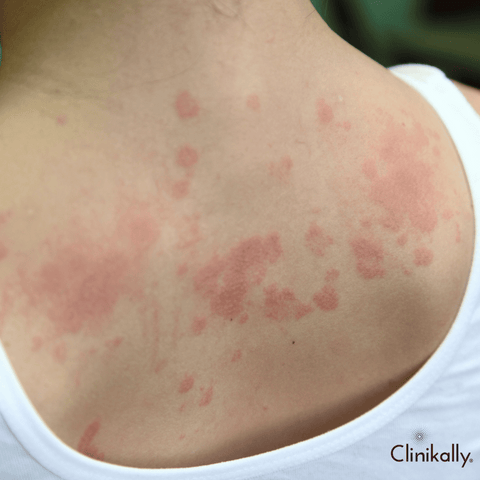
Atopic dermatitis is the most common form of eczema. it happens when your skin’s natural barrier against the elements is weakened, and your skin is less able to protect you from irritants or allergens.
Symptoms: Dry, cracked skin, itchiness, rash on swollen skin, small or raised bumps on brown or black skin, raw sensitive skin from scratching
#2 Contact dermatitis
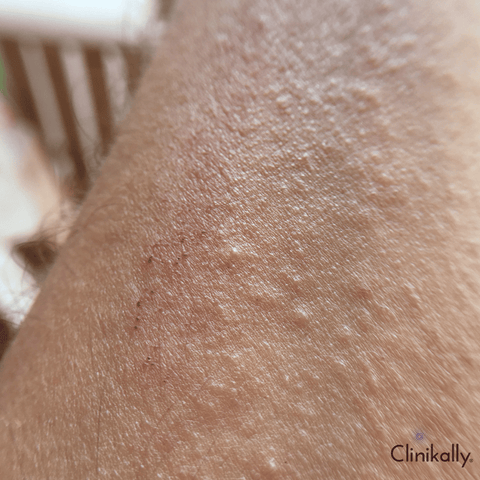
Contact dermatitis happens when your skin comes into contact with something that causes a rash. it can be soaps and detergents, jewellery made with nickel and industrial chemicals like solvents and cement. It can cause skin irritation or an allergic reaction.
Symptoms: Itchy rash, Leathery patches that are darker than usual (hyperpigmented), dry, cracked, scaly skin, bumps and blisters, sometimes with oozing and crusting, swelling, burning or tenderness
#3 Dyshidrotic eczema
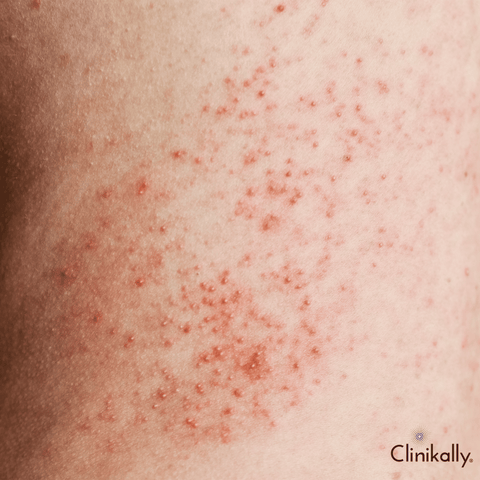
Dyshidrotic eczema causes tiny, intensely itchy blisters on the hands or feet. It is also called pompholyx.
Symptoms: Itching, burning sensation, prickly feeling, tiny itchy fluid-filled blisters, dark spots
#4 Seborrheic dermatitis

Seborrheic dermatitis is a common eczema that mainly affects the sebaceous gland-rich regions of the scalp, face and trunk.
Symptoms: Winter flares, localised scaly patches in the scalp, ill-defined plaques in skin folds on both sides of the face, rash in armpits, under the armpits, under the breasts, and in the groin fields.
#5 Neurodermatitis
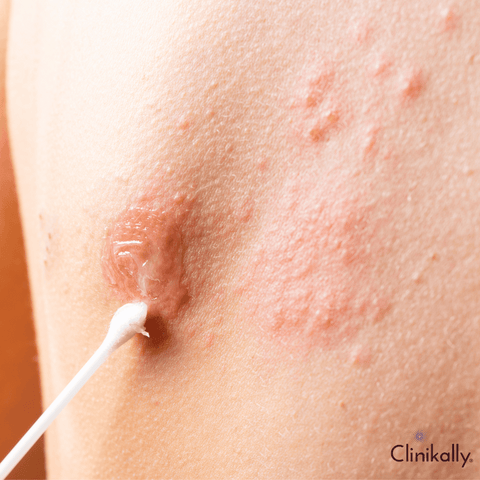
Neurodermatitis causes thick, scaly patches to appear on your skin. This patch forms on your arms, legs, back of your neck, scalp, bottoms of your feet, back of your hands, or genitals. It can result in itchiness, and the patches can bleed if you scratch them.
Symptoms: Itchy, scaly skin patches, open sores that bleed, thick leathery skin, dry and wrinkled genital skin, Raised rough patches that are inflamed
#6 Nummular eczema
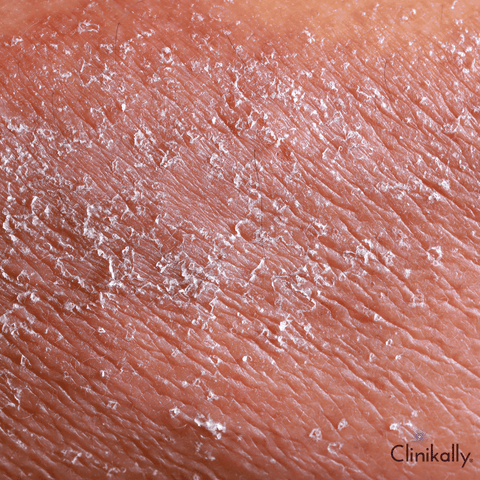
Nummular eczema, also called nummular dermatitis, creates small, rounded lesions all over the body, especially on arms and legs.
Symptoms: Tiny bumps and blister-like sores, coin-shaped raised spots, itchy, extremely dry skin, infection, flat dark spots
#7 Stasis dermatitis
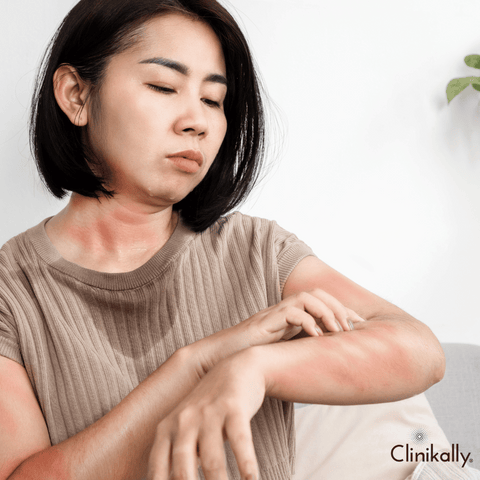
Stasis Dermatitis happens in people with poor blood flow problems in their legs. It occurs when fluids leak out of weakened veins into your skin. The fluid causes swelling, redness, itching and pain.
Symptoms: Deeply pigmented skin, discoloured scaly skin, intensely itchy skin, wounds and sores.
Risk factors leading to eczema
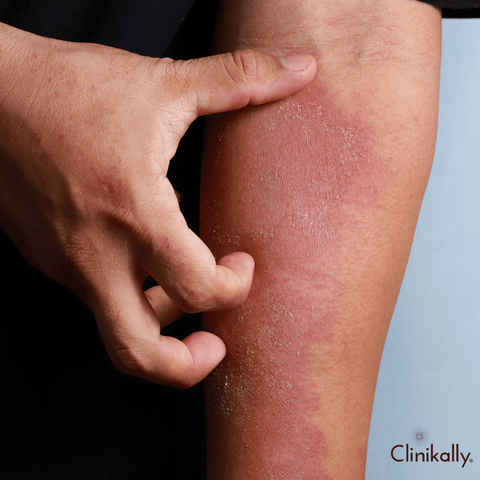
To help prevent eczema from developing in the first place, it's important to avoid known triggers . These include a wide range of irritants, allergens, and other substances.
-
Soaps, detergents, shampoos, and dishwashing liquids
-
Bubble bath liquids
-
Mold
-
Pollen
-
Pet dander
-
Dust mites
-
A hot or dry climate
-
High or low humidity
-
Bacterial, viral or fungal infections
-
Dust or sand
-
Cigarette smoke
-
Perfumes and cosmetics
-
Wool or synthetic fabrics
-
Chemicals and cleaning solutions
-
Allergenic foods such as milk, eggs, peanuts, soy, wheat, and fish
What age groups can get eczema?

Eczema is a skin condition that affects people of all ages, but it is more common in children. The symptoms of eczema can vary from person to person, but it usually includes dry skin and redness. Eczema can be caused by many factors - environmental, lifestyle and genetic - so there is no one-size-fits-all approach to treatment. Keep your skin clean and dry at all times to reduce flareups; this will also help improve it's overall health.
Lotions and creams for eczema
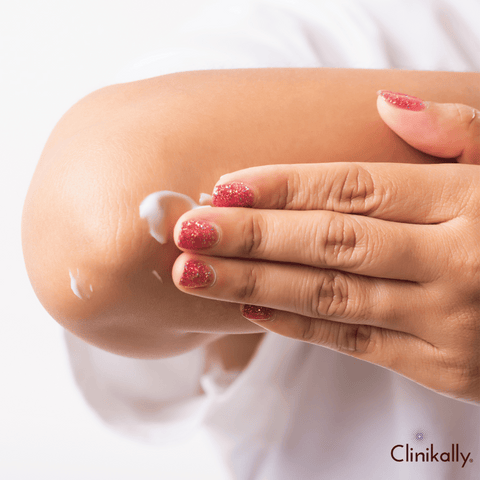
If you are struggling with eczema, lotions and creams might be your best solution. Lotions are more effective at moisturising eczema skin than soap is. Avoid using harsh soaps on eczema skin, as it can make the condition worse rather than better!
Do home remedies for eczema really work?

Eczema is a skin condition that can be quite severe and difficult to treat. While there are various types of eczema, all of them share the common characteristic of being itchy and dry. Home remedies for eczema are often touted as effective treatment options, but this is not always the case. Eczema can be treated with a combination of therapies, including moisturisers, Hydrocortisone creams, and antihistamines. Also relaxation techniques like meditation and biofeedback therapy.
How to prevent an eczema flare-up

Preventing eczema flare-ups is all about taking care of your skin. There are various treatments available, as well as topical creams and emollients to help soothe and moisturize the skin. However, it's important to be proactive in managing early eczema flare-ups - this will give you a better chance of successful treatment. Factors like environmental allergies or stress can often cause it. If left untreated, eczema usually worsens over time until it becomes chronic (ongoing).
The psychological impact of eczema

Eczema can have a significant psychological impact on people, negatively impacting their emotional well-being and quality of life. The persistent and visible nature of eczema symptoms can cause a variety of psychological difficulties, including:
-
Emotional distress: Managing the itchiness, pain, and discomfort brought on by eczema can make people feel more stressed, frustrated, anxious, and powerless. Sleep quality can be impacted by persistent itching and discomfort, which can result in weariness and irritability.
-
Self-esteem and body image: The face, hands, and neck are common areas of the body where eczema manifests itself. A negative body image and feelings of embarrassment and self-consciousness can result from visible rashes, redness, scaling, and inflammation. This may have an effect on confidence and self-worth, especially in social settings.
-
Social impact: People who have eczema may shy away from public places, swimming pools, and activities that require baring their skin because they are uncomfortable or fearful of being judged. This social withdrawal can result in feelings of isolation and loneliness.
-
Impact on daily life: Managing eczema takes a significant amount of time and effort. Constant skincare routines, doctor visits, and trying new treatments can interfere with daily activities, affecting work, school, and personal relationships.
-
Depression: The chronic nature of eczema and its impact on quality of life can lead to depression in some people.
-
Scratching cycle: Eczema is characterised by itchiness. Continuous scratching can result in a "scratch-itch" cycle, in which scratching provides temporary relief but ultimately worsens the skin and causes more itching, perpetuating the cycle.
The psychological impact of eczema must be addressed for holistic management. Here are some coping tactics for eczema's psychological effects:
-
Seek emotional support from friends, family, or support groups to discuss your feelings and experiences.
-
Practice stress-reduction techniques like meditation, yoga, or mindfulness to manage stress and anxiety.
-
Consider getting counselling or going to therapy to learn coping strategies and techniques for dealing with the emotional effects of eczema.
-
Participate in activities that will boost your self-esteem and confidence.
-
Maintain a consistent skincare routine and treatment plan to effectively manage symptoms.
-
Educate others about eczema to dispel myths and foster understanding and support.
Consultation with healthcare professionals, such as dermatologists and mental health specialists, can provide guidance, support, and treatment options for managing both the physical symptoms and the psychological impact of eczema.
Eczema in infants and children
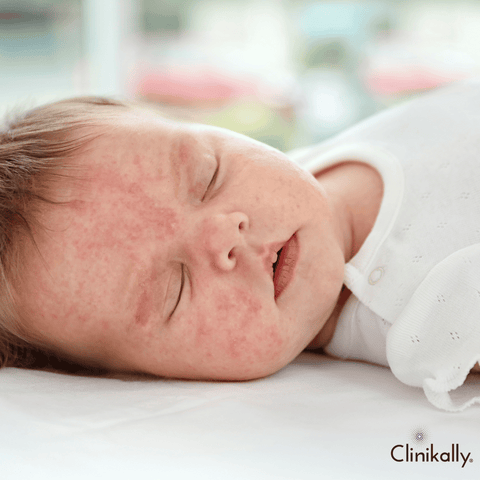
Eczema is a common skin ailment that can affect newborns and children. It is also known as atopic dermatitis. It usually manifests as red, dry, itchy patches on the skin and can be painful for the youngster. Here are some crucial points about newborn and child eczema:
Symptoms:
-
Rash: Eczema frequently manifests as a red, dry, and itchy rash on the face, scalp, cheeks, elbows, and knees.
-
Itching: Children and infants may scratch the affected areas, causing further irritation and possibly causing skin infections.
-
Dry skin: Affected skin areas may appear dry, rough, or scaly.
-
Flare-ups: Symptoms may come and go, with exacerbation (flare-ups) and improvement.
Causes and Triggers:
-
Genetics: Eczema can be related to genetic factors and frequently runs in families.
-
Environmental factors: Allergens (such as pollen, dust mites, and pet dander) and irritants (such as soaps, detergents, and specific fabrics) can cause flare-ups.
-
Food allergies: Although this varies from child to child, some children may have eczema brought on by particular food allergies.
Treatment and Management:
-
Moisturising: Keeping the skin moisturised on a regular basis is essential for managing eczema. To keep the skin hydrated, use light moisturisers without fragrance.
-
Avoiding triggers: Recognise and stay away from things that make the condition worse, like certain foods, harsh soaps, or fabrics.
-
Bathing routine: Use gentle, non-soap cleansers and lukewarm water. After taking a bath, gently pat the skin dry and apply moisturiser right away.
-
Clothes: Steer clear of materials that scratch or irritate the child and dress them in cotton or other soft, breathable fabrics.
-
Medical treatments: To treat severe symptoms, a physician may prescribe antihistamines, topical corticosteroids, or other drugs in certain situations.
Coping and Support:
-
Parental support: By upholding skincare regimens and assisting in the identification of triggers, parents or other carers can significantly contribute to the management of a child's eczema.
-
Doctor consultation: To develop a customised treatment plan and get advice on how to manage your child's eczema, speak with a paediatrician or dermatologist.
-
Education and awareness: To foster a supportive environment for the child, educate family members, carers, and educators about eczema.
Infants and children with eczema need to be treated with patience and constancy. Working closely with healthcare professionals can help tailor an effective management plan to alleviate symptoms and improve the child's quality of life because each child's condition is unique.
The role of diet in eczema management

Dietary factors in eczema management can differ from person to person. While nutrition is not the only cause of eczema, certain foods can induce or worsen flare-ups in some people. Identifying and avoiding certain trigger foods can aid in the management of eczema symptoms. It is crucial to highlight, however, that dietary adjustments should be undertaken with caution and under the supervision of a healthcare practitioner. Here's how a diet can help with eczema:
Potential Triggers:
-
Food allergies: Some people with eczema may have food allergies, which can aggravate their symptoms. Cow's milk, eggs, nuts, soy, wheat, and shellfish are all common allergens.
-
Food sensitivities: Even in the absence of an allergy, certain foods can cause eczema flare-ups or worsen symptoms in sensitive people. These trigger foods can differ greatly between people.
-
Processed foods and additives: Some people may develop eczema as a result of preservatives, artificial colors, and certain additives found in processed foods.
Dietary Management Strategies:
-
Maintain a food diary: Tracking your diet and eczema symptoms can assist in identifying any potential links between certain foods and flare-ups.
-
Elimination diet: Under the supervision of a healthcare professional, eliminating suspected trigger foods for some time and gradually reintroducing them one at a time can help pinpoint specific triggers.
-
Healthy diet: Emphasise a balanced and nutritious diet rich in fruits, vegetables, whole grains, lean proteins, and healthy fats. Omega-3 fatty acids found in fish, flaxseeds, and walnuts may have anti-inflammatory properties that help some people with eczema.
-
Stay hydrated: Drinking plenty of water can help keep your skin hydrated from within.
Things to Consider:
-
Individual differences: Trigger foods can vary greatly from person to person. What one person experiences may not be felt by another.
-
Consult a medical professional: Before making any significant dietary changes, especially in children, consult with a healthcare provider or a registered dietitian who specialises in eczema management.
-
Be cautious when using elimination diets: The elimination of major food groups may result in nutritional deficiencies. It is critical to maintain a balanced diet while avoiding certain foods.
While there is no uniform diet for eczema management, some people may find relief by identifying and eliminating trigger foods. To maintain a safe and balanced approach to managing eczema with diet, it is critical to approach dietary modifications with caution and seek help from healthcare professionals.
Understanding eczema triggers and how to avoid them

Understanding and avoiding eczema triggers is critical for controlling the condition and avoiding flare-ups. Eczema causes differ from person to person, but several common circumstances may aggravate symptoms. Here's how to spot and avoid these red flags:
-
Irritants: Irritating substances on the skin might cause eczema flare-ups. Soaps, detergents, fragrances, and harsh chemicals found in cleaning goods are examples of these.
Avoidance: Use mild, fragrance-free soaps and detergents. When using cleaning products, wear gloves and attempt to limit your exposure to harsh chemicals. -
Allergens: Allergens can exacerbate eczema symptoms. Pollen, pet dander, dust mites, mould, and some foods are examples.
Avoidance: Determine and restrict your exposure to recognised allergies. To reduce indoor allergies, use allergen-proof bedding, howover, and dust regularly, and consider air purifiers. Work with a healthcare expert to identify and treat specific food allergies or sensitivities when it comes to food triggers. -
Fabrics and Clothing: Rough or irritating fabrics can irritate the skin and cause flare-ups of eczema.
Avoidance: Choose soft, breathable fabrics such as cotton over scratchy materials such as wool. Wash new clothes before wearing them to remove any potential irritants. -
Temperature and Humidity: High or low humidity, as well as extreme temperatures, can aggravate eczema.
Avoidance: Keep your room at a comfortable temperature and use a humidifier in dry weather to keep your skin from drying out. In hot weather, dress in loose, breathable clothing to prevent sweating. -
Stress: Stress on an emotional level can exacerbate pre-existing symptoms of eczema or cause flare-ups.
Avoidance: Take up stress-relieving exercises like yoga, meditation, and mindfulness, or meditation, or take up relaxing pastimes and pursuits. -
Scratching: Frequent scratching can aggravate the skin even more and cause a flare-up.
Avoidance: To lessen the impulse to scratch, cut your nails short, cover itchy spots with soft cloths, and use diversionary tactics.
Trigger Avoidance Techniques:
-
Keep a diary: Keep a record of your eczema symptoms and potential triggers. This can assist in identifying patterns and specific triggers that aggravate your eczema.
-
Consult a medical professional: Work with a dermatologist or healthcare provider to identify eczema triggers that are unique to your condition and receive personalised advice on how to manage eczema triggers.
-
Establish a skincare routine: Protect and hydrate the skin with gentle skincare products and moisturisers regularly to reduce the risk of flare-ups.
-
Avoid known triggers: Once you have identified them, take proactive steps to limit your exposure to triggers that aggravate your eczema symptoms.
By identifying and avoiding eczema triggers, individuals can effectively manage their condition, reduce flare-ups, and improve their overall quality of life.




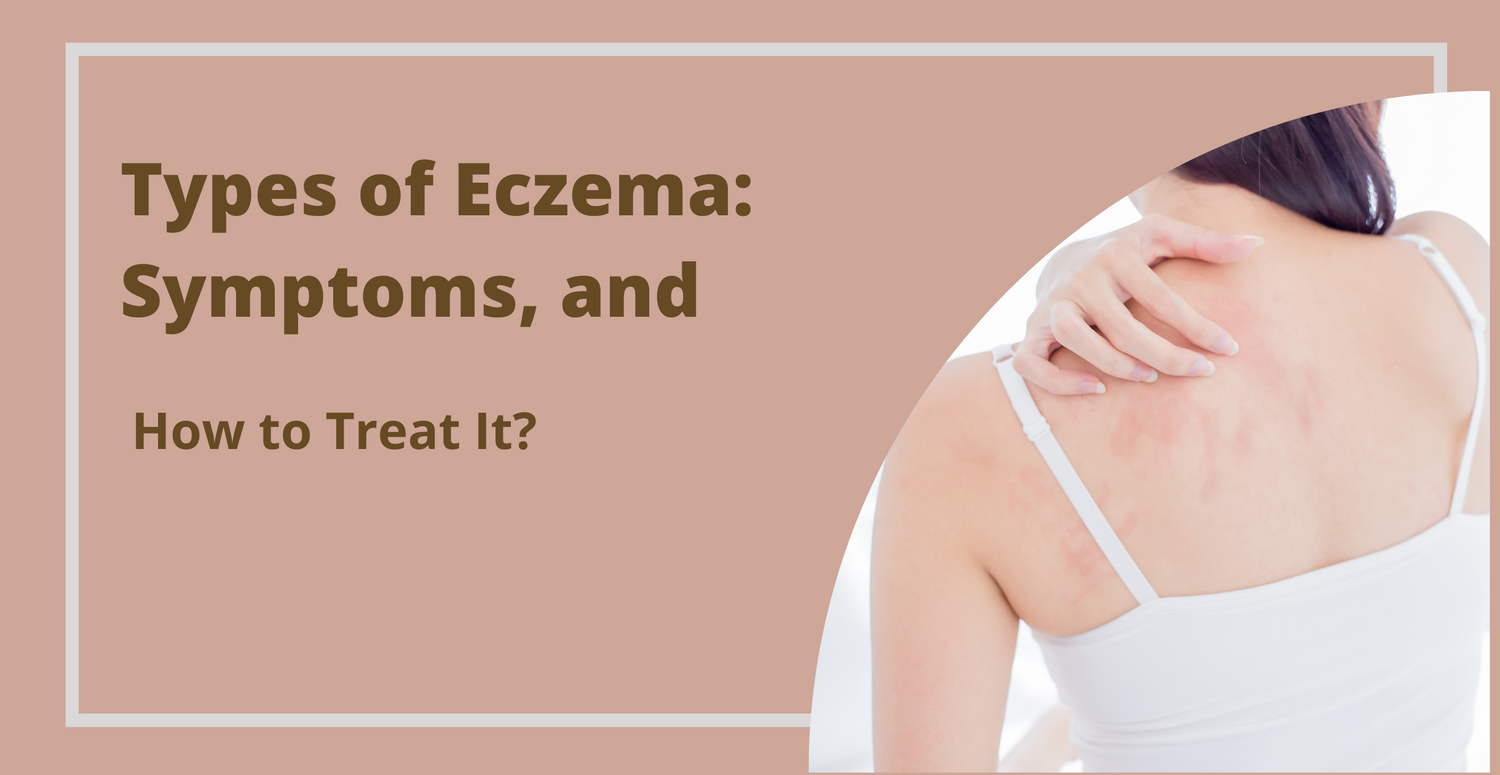












1 comment
Once treated and cured can eczema reoccur again and again and can it be treated permanently.
Once treated and removed can eczema reoccur again and again.
Once treated and removed can eczema reoccur again and again.